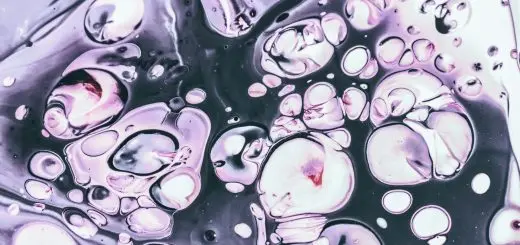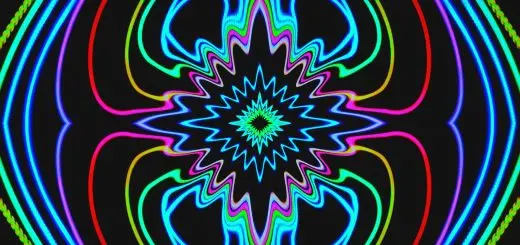Why Minimalism Might Be the Best Thing for Your Life

Looking for more amazing products? Check out our online store and explore our collection here! Happy shopping!
Before diving in, please note: This post is for informational purposes only. If you’d like to know more about how we approach topics, feel free to check out our friendly Disclaimer Page.
Hey there, amazing readers! 
We’re committed to delivering quality posts, and your support (even just sticking around despite the ads) means everything to us. So, bear with us, and thanks for helping us keep the good vibes rolling. Now, on to the fun stuff!
TRANSLATE BUTTON AT THE END OF THE ARTICLE
A Quick Overview
Minimalism isn’t just about living with fewer things; it’s about making room for what truly matters.
In a world that often celebrates excess, embracing minimalism feels like a breath of fresh air.
It allows us to focus on experiences rather than possessions, appreciate simplicity, and find joy in the little things.
Whether you’re overwhelmed by clutter or just looking for a way to simplify your life, minimalism might be the best path for you.
Let’s dive into why adopting a minimalist lifestyle could transform your life for the better.
Discovering the Joy of Living with Less: A Guide
Imagine waking up each day in a space that feels open and inviting rather than chaotic and cluttered.
That’s the joy of minimalism.
It encourages us to take a good, hard look at what we own and ask ourselves if each item truly adds value to our lives.
From clothing to kitchen gadgets, there’s often a lot we can let go of.
Minimalism allows us to focus on quality over quantity.
Instead of filling our homes with countless items, we can invest in a few high-quality pieces that we genuinely love.
Think of that cozy chair you enjoy curling up in with a good book, or that set of dishes you use for special occasions.
These items bring joy, while the rest tend to weigh us down.
Living with less also creates physical space, which translates into mental space.
When I decluttered my home, I noticed an immediate change in my mindset.
I felt lighter and more at ease.
It’s as if I had cleared the cobwebs from my brain.
Minimalism is not a one-size-fits-all approach.
Each person’s journey is unique.
Some people may choose to downsize their possessions drastically, while others might simply aim to reduce the clutter in specific areas.
The beauty of this lifestyle is that it’s adaptable.
By focusing on experiences rather than material goods, we can cultivate deeper connections with ourselves and others.
When we let go of the need for excess, we open ourselves up to richer experiences—like spending a weekend hiking with friends instead of shopping.
As we embark on this journey, we can also embrace the concept of intentional living.
This means being deliberate about what we bring into our lives and making sure it aligns with our values and goals.
It’s a refreshing way to approach life.
Ultimately, minimalism teaches us that happiness doesn’t come from accumulating things.
Instead, it’s found in embracing simplicity and cherishing the moments that truly matter.
How Minimalism Can Improve Your Mental Health Today
Let’s face it: mental clutter can feel just as overwhelming as physical clutter.
If you’ve ever felt anxious or drained by the sheer amount of stuff in your life, you’re not alone.
Minimalism has the potential to alleviate that mental burden, leading to improved mental health.
When I started decluttering my space, I noticed my stress levels began to drop.
There’s something peaceful about a clean, organized environment.
Without the constant visual reminders of things I needed to sort or organize, I could focus better on my tasks.
Research suggests that a tidy environment can lead to increased productivity.
This is especially true for those of us who work from home.
A clean workspace can help us concentrate and feel more motivated.
Moreover, minimalism encourages mindfulness.
By simplifying our lives, we learn to appreciate the present moment.
Instead of getting lost in a myriad of distractions, we can focus on what truly matters—our relationships, our passions, and our wellbeing.
Many people report feeling a sense of freedom when they let go of excess possessions.
It’s liberating to realize that we don’t need to hold onto things for fear of “what if.” We can find joy in letting go and embracing the simplicity of life.
Then there’s the emotional aspect of minimalism.
We often attach memories to our belongings, but this can lead to feelings of guilt or sadness when we consider parting with them.
Minimalism teaches us that our memories are not tied to physical items.
Once I learned this, it became easier to let go of things I no longer needed.
The practice of minimalism also fosters gratitude.
When we have fewer possessions, we tend to appreciate what we do have more.
We learn to be thankful for the little things—a warm cup of coffee in the morning or a sunny day outside.
In essence, minimalism can be a powerful tool for improving mental health.
By reducing physical and mental clutter, we create a more peaceful and fulfilling life.
Decluttering Your Space: A Path to a Clear Mind
Decluttering isn’t just about throwing things away; it’s a process that requires thoughtfulness and intention.
When I first began decluttering, I felt overwhelmed.
Where do I even start?
The key is to take it one step at a time.
Begin with a single space, like a drawer or a closet.
Empty it out completely and sort through each item.
Ask yourself: Does this bring me joy?
Do I use this regularly?
If the answer is no, consider donating or recycling it.
I found that tackling smaller areas made the process manageable.
Once I decluttered my kitchen cabinets, I felt a sense of accomplishment.
It provided motivation to move on to the next space.
Another useful technique is the “one in, one out” rule.
For every new item you bring into your home, consider letting go of an existing one.
This practice helps maintain balance and prevents clutter from creeping back in.
Don’t forget the emotional component of decluttering.
It’s natural to feel attached to certain items, but remember that letting go doesn’t diminish the memories associated with them.
I often take a picture of sentimental items before letting them go, preserving the memory without the physical weight.
As you declutter, you might discover a few treasures that you had forgotten about.
Perhaps an old book that you loved or a piece of art that once inspired you.
These moments can reignite joy in your life.
Consider implementing a regular decluttering routine.
Set aside time each month to reevaluate your belongings.
This can help you stay organized and prevent clutter from accumulating again.
Creating a clear space fosters a clear mind.
The act of decluttering can be cathartic, allowing us to release what no longer serves us and make room for new experiences and opportunities.
The Financial Benefits of Embracing Minimalism
Wondering how minimalism can impact your wallet?
You might be surprised at how much money you can save by adopting this lifestyle.
When you shift your focus from acquiring more stuff to valuing experiences and quality, your spending habits naturally change.
First off, minimalism encourages you to buy less.
When you’re mindful of your purchases, you prioritize what truly matters.
Instead of impulsively buying items that will end up collecting dust, you consider each purchase carefully.
I found that embracing minimalism reduced my shopping trips drastically.
Instead of browsing stores aimlessly, I became more intentional about what I bought.
This led to significant savings over time.
Moreover, the concept of “buying quality” instead of quantity can save you money in the long run.
Investing in durable items that last tends to be more cost-effective than repeatedly replacing cheaper versions.
Minimalism can also lead to fewer expenses overall.
With less stuff, there’s less need for large living spaces, which can result in lower rent or mortgage payments.
You might even consider downsizing to a smaller home, leading to additional savings on utilities.
If you’re someone who loves to collect items, minimalism encourages you to channel that passion into experiences rather than physical possessions.
Instead of spending money on accumulating things, why not invest in travel, classes, or hobbies that interest you?
Additionally, think of the costs associated with maintaining your belongings—cleaning, organizing, insurance, and storage.
By possessing fewer items, you reduce these expenses and free up your budget for more meaningful experiences.
Lastly, consider the environmental benefits of minimalism.
When we buy less, we contribute to a more sustainable economy.
This shift can lead to a healthier planet, which is something we can all appreciate.
In short, minimalism isn’t just a lifestyle choice; it’s a smart financial strategy.
By being intentional about our purchases and embracing simplicity, we can save money while enriching our lives.
Creating Meaningful Experiences Beyond Material Possessions
In a world that often equates happiness with possessions, minimalism offers a refreshing alternative.
It teaches us to seek joy in experiences rather than things.
I remember a travel adventure I took with friends, where we created unforgettable memories without spending a fortune on material goods.
When I think back to my happiest moments, they often involve time spent with loved ones—laughing over a home-cooked meal, exploring nature, or embarking on adventures.
These experiences stay with us far longer than any item we might buy.
Minimalism encourages us to prioritize relationships and experiences.
Instead of filling our calendars with shopping trips or events centered around material consumption, we can focus on activities that foster connections and personal growth.
Consider hosting a potluck dinner instead of going out to eat.
Not only does this save money, but it also creates an opportunity for bonding and shared experiences.
Plus, there’s something magical about sharing homemade food with friends.
We can also explore local attractions and nature.
Hiking trails, museums, and parks offer opportunities for exploration without the need for expensive outings.
Think about how we can incorporate experiences into our lives daily.
Instead of scrolling through social media or binge-watching TV shows, we can make time for hobbies, volunteering, or learning something new.
Embracing minimalism can transform our perspective on life.
It allows us to cultivate gratitude for the moments we share with others and the experiences we create together.
Ultimately, the shift from valuing possessions to valuing experiences enriches our lives and fosters deeper connections.
When we let go of the need for more stuff, we open ourselves up to a world filled with possibilities.
Minimalism and Sustainability: A Greener Lifestyle Choice
In recent years, the connection between minimalism and sustainability has gained traction.
As we become more aware of environmental issues, minimalism offers a way to live in harmony with the planet.
By adopting a minimalist lifestyle, we inherently consume less.
This shift reduces our carbon footprint, as we produce less waste and lessen the demand for mass production.
Every item we choose to forgo contributes to a healthier environment.
I’ve noticed that my own consumption habits changed dramatically as I embraced minimalism.
Instead of mindlessly purchasing items, I began considering the environmental impact of my choices.
This new perspective led me to favor eco-friendly products and sustainable brands.
Minimalism encourages us to be mindful consumers.
It prompts us to ask questions before buying: Is this item necessary?
How long will it last?
Can I find a sustainable alternative?
These questions help guide our purchasing decisions in a positive direction.
Moreover, decluttering can be an opportunity to practice sustainability.
When letting go of items, consider donating or recycling them rather than tossing them in the trash.
This simple act can extend the life of products and prevent unnecessary waste.
Adopting minimalism can also lead to a shift in how we view consumption.
Instead of equating happiness with acquiring more, we can find fulfillment in living simply and appreciating nature’s beauty.
We can also explore upcycling and DIY projects, turning old items into something new and useful.
This creative approach not only reduces waste but can also be a fun and fulfilling way to spend our time.
By choosing a minimalist lifestyle, we embrace a greener approach to living.
It allows us to align our values with our actions, creating a more sustainable future for ourselves and the planet.
Finding Your True Self Through Minimalist Practices
Minimalism isn’t just about what we own; it’s a journey of self-discovery.
As we simplify our lives, we create space to explore who we are without the distractions of material possessions.
In my own journey, minimalism has helped me uncover my passions and priorities.
When I let go of the excess, I had more time and energy to invest in the things that genuinely bring me joy.
The process of decluttering often reveals what truly matters to us.
As we sort through our belongings, we gain insight into our values and interests.
I found that many items I held onto no longer resonated with who I had become.
Minimalism can also lead to greater clarity in decision-making.
When we eliminate the noise of excess, we can focus on what aligns with our goals and aspirations.
This newfound clarity can empower us to make choices that reflect our authentic selves.
Engaging in minimalist practices encourages us to be present.
Whether it’s savoring a quiet moment with a cup of tea or enjoying a walk in nature, we learn to appreciate life’s simple pleasures.
Additionally, minimalism can inspire us to cultivate deeper relationships.
As we prioritize quality time with others, we foster connections that enrich our lives.
These relationships often become more meaningful than any material possession.
Ultimately, embracing minimalism serves as a pathway to self-discovery.
By simplifying our lives, we create the opportunity to explore our true selves, uncover our passions, and live authentically.
Tips to Get Started on Your Minimalist Journey Today
Ready to dive into minimalism?
Here are some practical tips to help you begin your journey:
Start Small: Pick one area to declutter—a drawer, a closet, or even your car.
Tackle it bit by bit.
You’ll feel accomplished and motivated to continue.
Set Goals: Define what you want to achieve through minimalism.
Whether it’s reducing stress, saving money, or creating space for hobbies, having clear goals will guide your journey.
Create a Timeline: Set aside specific times each week to declutter.
Consistency is key to making gradual changes.
Keep a Donation Box: As you come across items you no longer need, toss them in a designated donation box.
When it’s full, take it to your local charity.
Practice Mindfulness: Before making a purchase, pause and ask yourself if it aligns with your values.
This simple practice can prevent impulse buying.
Involve Others: Consider inviting friends or family to join you in your decluttering efforts.
It can make the process more enjoyable and hold you accountable.
Celebrate Your Progress: Recognize and celebrate the small wins along the way.
Each step you take towards minimalism is a step towards a more intentional life.
Be Patient with Yourself: Minimalism is a journey, not a destination.
Allow yourself to grow at your own pace and don’t feel pressured to achieve a perfect minimalist lifestyle overnight.
Embarking on the minimalist path can be incredibly rewarding.
With each item you let go of, you create space for what truly matters in life.
Embrace the journey, and enjoy the simplicity and joy that comes with it.
Conclusion
Minimalism offers a plethora of benefits that go beyond just living with fewer possessions.
It can dramatically improve your mental health, lead to financial savings, foster meaningful experiences, and promote sustainability.
By embracing this lifestyle, you create space for clarity, self-discovery, and deeper connections.
Whether you’re looking to declutter your home or simply seek a more fulfilling life, minimalism provides a pathway to joy and freedom.
So take a deep breath, let go of the excess, and discover the beauty of living with less.
It might just be the best decision you ever make for your life.

The Enlightenment Journey is a remarkable collection of writings authored by a distinguished group of experts in the fields of spirituality, new age, and esoteric knowledge.
This anthology features a diverse assembly of well-experienced authors who bring their profound insights and credible perspectives to the forefront.
Each contributor possesses a wealth of knowledge and wisdom, making them authorities in their respective domains.
Together, they offer readers a transformative journey into the realms of spiritual growth, self-discovery, and esoteric enlightenment.
The Enlightenment Journey is a testament to the collective expertise of these luminaries, providing readers with a rich tapestry of ideas and information to illuminate their spiritual path.
Our Diverse Expertise
While our primary focus is on spirituality and esotericism, we are equally passionate about exploring a wide range of other topics and niches 

To ensure we provide the most accurate and valuable insights, we collaborate with trusted experts in their respective domains 
Our blog originally focused on spirituality and metaphysics, but we’ve since expanded to cover a wide range of niches. Don’t worry—we continue to publish a lot of articles on spirituality! Frequently visit our blog to explore our diverse content and stay tuned for more insightful reads.
Hey there, amazing reader! 
Check out our store here and take a peek at some of our featured products below! Thanks for being awesome!











